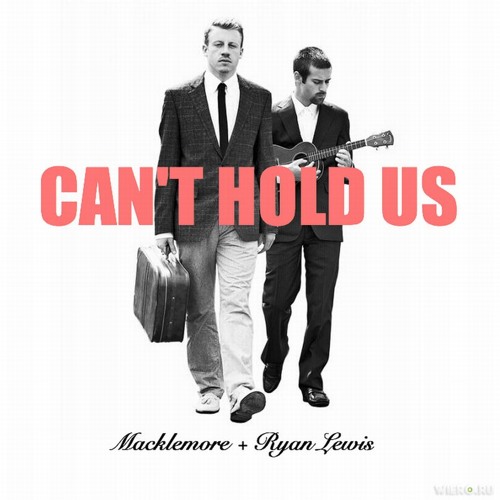About the Album:
“Vampire Weekend’s first two albums…possessed a magpie’s eye for the unusual, but with little that was revelatory below the surface charm of the unfamiliar.” SL Their “gift for catchy, polyrhythmic melodicism and an infinite palette of sonics made them a sort of musical Wes Anderson movie; easy to admire but one was just as likely to be annoyed by them.” SP
“On Halloween 2012, with their hometown New York subsumed in a blackout, Vampire Weekend went on late-night TV to play an atheist reggae jam called Unbelievers dressed as skeletons. It was the perfect introduction to Modern Vampires of the City, a record that darkened their buoyant indie pop, as Ezra Koenig sang about moving beyond his post-college years into something scarier and weirder.” RS’20
“The polo-shirted princes of prep entered an early midlife crisis” GU and bested their previous efforts “by getting a little weird, and by getting super comfortable in the studio, where they layered and assembled and fussed with crystalline songs until they were perfect but not over-scrubbed.” AV The band “figured out what to chuck and what to cultivate” GQ as they “escaped their preppy afro-pop straitjacket to explore a more nuanced sonic palette.” NME It “was the kind of progressive leap forward that bands always threaten to make but never quite stick the landing.” SP
“For a band that once seemed easy to hate, the polished songcraft and emotional urgency was suddenly undeniably resonant.” SP The album is “a radical declaration of maturity that turned on an entirely new set of listeners.” GQ “Some culture critics never really wanted Vampire Weekend to be the defining indie band of the 2010s, what with the tired narrative of privileged over-intellectualism that still occasionally surrounds the band. But as each album they released improved upon their sophisticated formula, it was clear they owned the genre for the decade.” CS’19
As Koenig said to Pitchfork, “The perfect tone is halfway between deeply serious and totally fucking around.” RS’19 On Modern Vampires of the City, he “makes his band’s encyclopedic references and genre-juggling seem both effortless here and tied to a higher purpose.” SP
To that end, this albums exhibits “a shrewd wit so lavish in composition and language that the themes penetrate through layers: art, humor, and pop appeal.” CS’19 “The lyrics are wiser and more worldly, the voices more flexible, the music more expansive.” GQ This is “an album of mortality, morality, God, uncertainty, and romantic decay, as much as it’s an album of in-jokes, wordplay, and goofy references.” RS’19
“Even the most party-starting track,” NME the “giddy single” BB Diane Young, “was a play on dying young.” NME The song is both “frenetic and painstakingly assembled.” AV Instrumentally, it delivers “sardonic deconstructions of the rock-n’-roll myth with Dick Dale-style guitars.” SL
Ya Hey has “a title that alludes to both the Old Testament God, Yahweh, and Outkast’s ‘Hey Ya.’” RS’19 The “contemporary redemption song,” RS’19 complete with “church organs and semi-ironic gospel choirs,” SL finds Koenig “talking to God between the deity’s festival DJ sets,” SP “asking how He could remain silent in a rotten world.” PF
Rostam Batmanglij “crafted his most sentimental, stirring music yet.” PF His “instrumental gifts…underscore the wordplay with the orchestral trickery and broad sonic soul the band is known for, but there’s more spiritual and aural weight here than on their Afropop-obsessed earlier work. This is a focused, dark record haunted by mortality down to the ticking clock on Hudson.” SP
With its “loping Gershwin-esque strings” SL “The beautifully worried Dylanesque travelogue” RS’20
Hannah Hunt offers a “novelistic half-sketches of peripatetic romance,” SL “winking toward hopelessness while suggesting that all the universe’s truths can be contained in a single love affair.” PF
“The beautiful nostalgic haze of Step” NME with a “loping baroque pop buoyed by harpsichord” AV “contained the graceful observational nugget ‘Wisdom’s a gift but you’d trade it in for youth.’” NME “But of all the moments that capture the unease and uncertainty of the past decade, as well as the darkly comic hope necessary to keep going, is a line on Finger Back so good Koenig would later recycle it: ‘I don’t want to live like this, but I don’t want to die.’” RS’19
Vampire Weekend have proven to be “more soulful and more vital than ever” SL on “the best rock album of the 2010s.” SP “The one-time buzzy blog band delivered a certified classic behind Rostam’s kaleidoscopic indie pop arrangements and Koenig’s winking existentialism.” BB This is “indie music firing on all possible cylinders, setting the pace for the genre’s modern iteration at large.” CS’19
Notes: The Japanese edition included additional mixes of “Ya Hey” and “Unbelievers.”
| 










